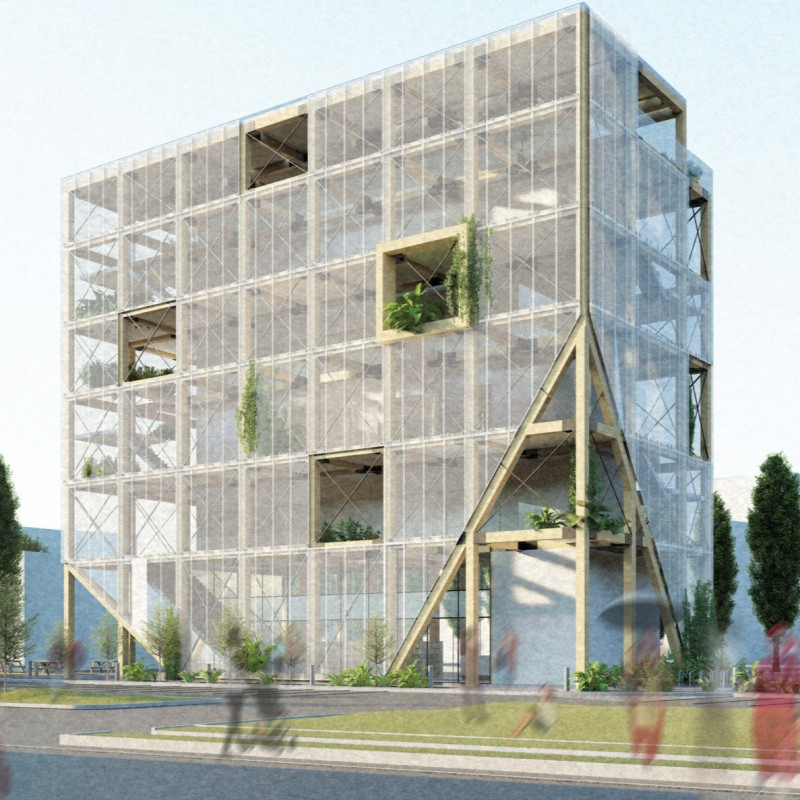5 key facts about this project
Pivot is a mixed-use commercial residential apartment building located in downtown Vancouver. It is designed to make the best use of narrow and underused urban sites. The concept focuses on maximizing the efficiency of space while promoting connections between private and shared living areas. The design aims to create a livable environment that supports community interaction and a sense of belonging.
Structural Design
At the core of the building is a slender internal structure that houses residential units. This core is framed by an external support system, allowing for a permeable facade. The facade invites natural light and fresh air into the building, enhancing the quality of indoor spaces. This thoughtful approach connects residents with the outside world, addressing the needs of people living in dense urban settings.
Modular Living
An essential feature of Pivot is the modular rotating wall system, which softens the boundaries between private and communal spaces. Residents can adjust the compact units to extend into shared areas, enabling personalization of their living environment. This adaptability encourages social interaction and fosters a cooperative community within the building.
Functional Levels
The design includes several functional levels that improve usability. There is a roof cover, a community garden, and multiple residential floors designed to promote interaction. The layout of the residential levels allows for double-height shared spaces below, enhancing opportunities for residents to engage with one another. Additionally, commercial spaces and mechanical systems are integrated to support the building’s overall operations.
Architectural Detail
Careful consideration of circulation patterns ensures easy access to both private and communal areas. Views from shared spaces and elevated walkways enrich the living experience. The flexibility of the units demonstrates how current architecture can meet the demands of urban living. The design creates a balanced environment that allows for privacy while encouraging community connections.


















































